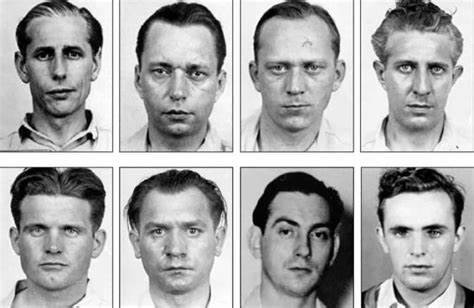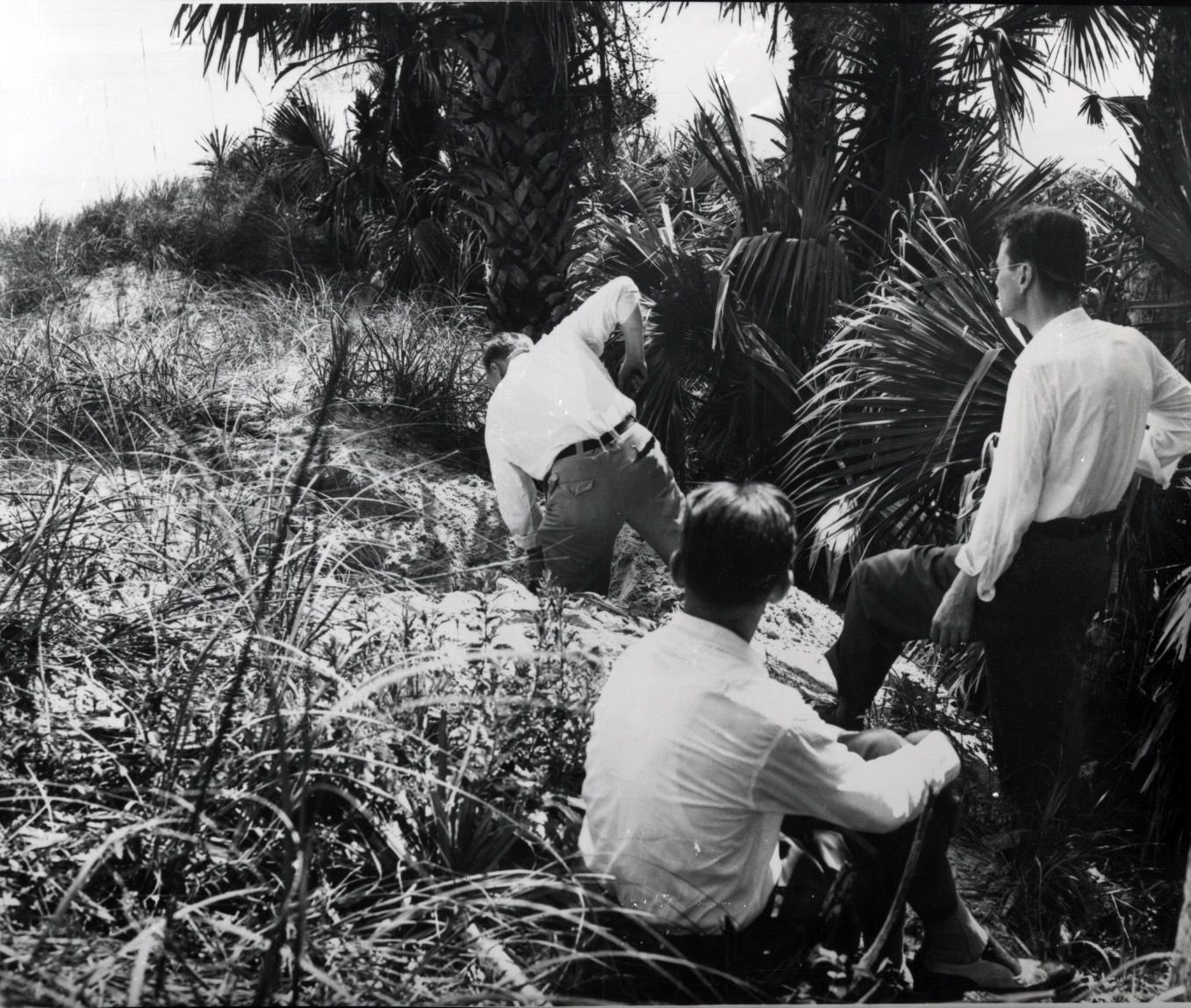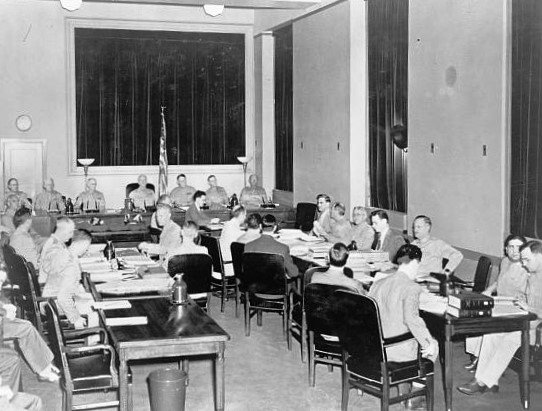Popular local speaker keeps audiences enthralled with accounts from local history
“In June of 1942, four German saboteurs landed right here in Ponte Vedra.”
As Scott A. Grant utters these words, the room falls silent. The man at the mic has the full attention of his audience.
“They came ashore in the 900 block of Ponte Vedra Boulevard around three, four in the morning,” he says. “Nobody saw them.”
Grant is speaking at a meeting of the Churchmen, a nondenominational men’s group, at the Sawgrass Country Club. It’s a presentation the local author has given many times throughout the area. But if any of the men in his audience has heard it before, it isn’t apparent – several have questions at the conclusion of the speech.
As a guest speaker, Grant is very much in demand. Since giving his first presentation nearly four years ago, he has spoken at meetings of several Rotary clubs, the Daughters of the American Revolution, the Navy League, Exchange clubs, the Meninak Club, the Southside Business Men’s Club and many, many others. He has spoken in retirement homes, libraries and museums.
“I apparently tell an interesting story,” he said by way of explanation.
The account of the saboteurs is one of three main topics he has researched and spoken about. All focus on local history.
“The one that I did the most was on a submarine attack that occurred on April 10, 1942,” he said. “A German submarine sank an oil tanker four to five miles off the coast of Jacksonville Beach.”
In fact, that was the topic of his first gig as a guest speaker. When he first encountered the story, it intrigued him. But developing it into a presentation was no small task. Not much was written about the attack at the time due to censorship during the war.
“I started researching it, and I quickly realized that there were two distinctly different versions of the story,” he said. “That made me wonder, well, which one was right. It turned out neither of them, really.”
The submarine attack was in full view of local residents, some of whom were attending a dance that Friday night at the pier.
“People saw it from the shoreline,” he said. “Hundreds of people, maybe thousands, stood on the shore and watched.”
The sub torpedoed the tanker, and there was an explosion. Nineteen men were killed.
“They would have seen it up and down the coast,” Grant said. “The coast is shaped a little like an amphitheater here anyway.”
Grant presented his narrative on April 10, 2017, the 75th anniversary of the attack.
Once word got out that he had an interesting story to tell, calls began to come in daily asking for it. In fact, he occasionally told the story up to three times in a single day to different groups. In all, he’s given that presentation about 175 times.
Another very popular speech Grant has given is about the summer of 1964.
That was the year several civil rights demonstrations were held in St. Augustine, and the Rev. Dr. Martin Luther King Jr. was arrested in the Nation’s Oldest City, which at that time was preparing for its 400th anniversary celebration.
That was the same year 17 rabbis were arrested in St. Augustine for assembling to protest racial segregation, discrimination and violence.
It was the year of the Monson Motor Lodge protest when the hotel’s owner infamously poured acid into the pool while African-Americans were swimming in it.
And it was the year of the Civil Rights Act of 1964.
The Beatles played at the Gator Bowl on Sept. 11, 1964, but only after officials agreed to racially integrate the stadium. That concert came on the heels of Hurricane Dora, which swept through the First Coast and prompted a visit by President Lyndon Johnson.
That was also the year Robert Lee "Bullet Bob" Hayes of Jacksonville – who went on to play for the Dallas Cowboys and win a Super Bowl – won two gold medals in the Tokyo Summer Olympics.
As with those two presentations, Grant’s account of the German saboteurs has proven very popular with his audiences.
On June 17, 1942, four men came ashore and buried “spy supplies” in the sand about a mile south of the Sawgrass Country Club, where Grant gave his presentation for the Churchmen.
“Legend says that they went to Alice B. Landrum’s general store/post office,” Grant said. “One of them went inside and asked about the bus schedule. Alice B. Landrum will later be interviewed about this event, and she says that they didn’t sound foreign at all.”
There would have been a good reason for that: All of the saboteurs were either U.S. citizens or had at least lived here.
Grant traced the path of one of the saboteurs, Herbert Haupt, from his home in Chicago to Mexico to Japan to France and finally to Germany, where he was recruited as a saboteur, put on a submarine and sent to Ponte Vedra Beach.
Haupt returned to Chicago where he spent some of his spy money on a ’41 Dodge and an engagement ring for his fiancée.
Before the men could commit any acts of sabotage, however, another German who landed with a second team – this time on Long Island – turned them all in to authorities.
“They haven’t committed any crimes yet,” Grant told his audience. “In a normal criminal court, the worse they would be get is conspiracy, maybe a couple of years in prison. That’s not what FDR wants. FDR wants a big, splashy headline.”
A military tribunal was convened. All eight were convicted and are sentenced to be executed. The sentences of two, however, were commuted to 30 years in prison. The other six died in an electric chair built by Thomas Edison for the state of New Jersey.
In his presentation, Grant included the fate of Haupt’s family and some curiosities – including the fact that one of the surviving saboteurs, having been deported to Germany after the war, annually sent Christmas cards to President Harry Truman.
At the end of his presentation, Grant received a rousing round of applause and an honorarium.
These days, he is not giving as many presentations as previously, limiting them to one per month due to the situation surrounding COVID-19.
In addition to his speeches, Grant has written several newspaper columns. Some of these are compiled in his book, “The Merchant of Death is Dead: True Stories of the Progress of Humanity.”
When he is not speaking before a group, Grant is president of Standfast Asset Management, where he manages investment portfolios.












